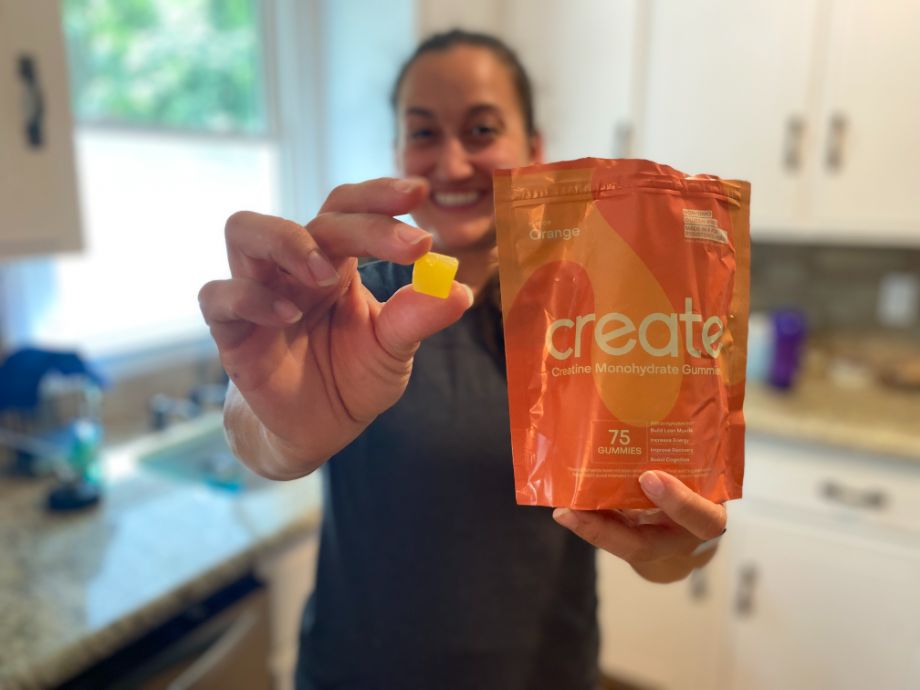Creatine is one of the most well-researched and effective sports supplements, and it’s useful for nearly any health and wellness goal. In my 12 years of experience working as a certified fitness and nutrition coach, I’ve seen and used all kinds of creatine products, including different forms, flavors, and cocktails of ingredients designed to boost exercise performance.
While creatine monohydrate is generally considered the gold standard, there are plenty of other options to consider, including creatine gummies which have been growing in popularity over the past few years.
So when it comes to creatine gummies vs powder, which should you choose? In this article, I’ll explain everything you need to know, and help you decide how to choose the best creatine for your fitness goals.
What Is Creatine?
Creatine is a naturally occurring molecule in the body that assists with energy production. Your liver uses three other amino acids, glycine, L-arginine, and L-methionine to make creatine. Creatine is used to produce adenosine triphosphate, or ATP, which fuels short, high-intensity bursts of energy that last less than 10 seconds.
RELATED: What Is Creatine?

A staple supplement for bodybuilders, CrossFitters, and fitness enthusiasts, creatine is found in meat and fish and is commonly used as a supplement to make sure your body’s creatine stores are full.
While there are many potential benefits of creatine, this supplement is mostly known for its ability to improve athletic performance in high-intensity exercise1, like lifting weights, jumping, or sprinting.
Unlike stimulants, which noticeably kick in shortly after consumption, creatine’s benefits are more subtle as your body’s creatine levels increase over time. You may not notice the effects until you’ve been taking it for a while and it’s had time to build up in your system.
What Are Creatine Gummies?
Creatine gummies generally contain creatine monohydrate, which is the most well-researched, effective form of creatine2, though some brands may use other forms of creatine.
Unlike creatine in powder form, which needs to be mixed into some type of liquid (you should never dry scoop creatine), gummies are a convenient alternative that can provide your daily creatine, while also serving as a sweet treat.
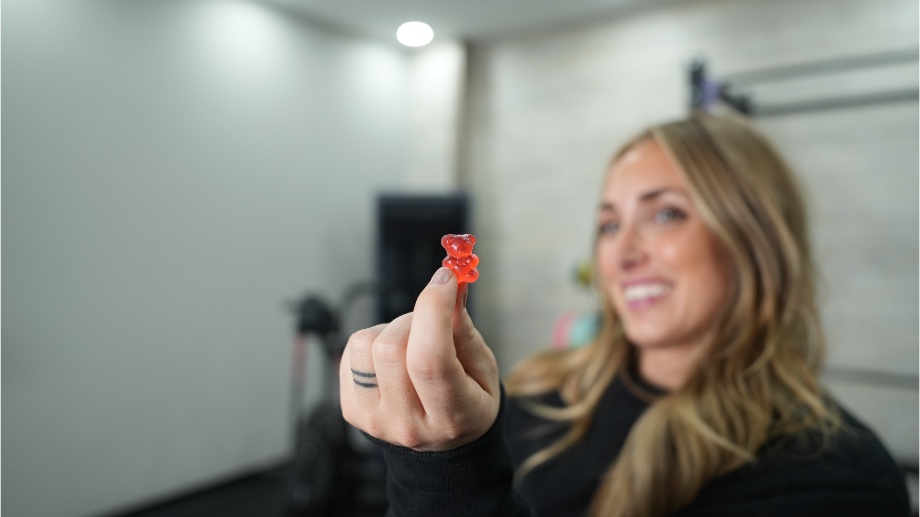
Along with creatine gummies usually include sweeteners, sugar, natural and/or artificial flavors, and various other ingredients to create the signature gummy texture.
The recommended dose of creatine monohydrate1 is 3 to 5 grams per day and most of the gummies we’ve tested fall right in this range.
RELATED: What Is the Best Creatine Monohydrate Dosage?
Creatine Gummies vs Creatine Powder
Since both powdered supplements and gummies can provide an effective dose of creatine, let’s highlight the most important differences between the two.
Convenience
The biggest difference between creatine powder and gummies is the convenience factor.
Creatine powder needs to be mixed with some sort of liquid, so while it is portable, it’s a bit more of a hassle to mix it up before drinking. You can add it to your protein shake, pre-workout, or any other beverage, but it’s not as convenient.
RELATED: Best Pre-Workout With Creatine
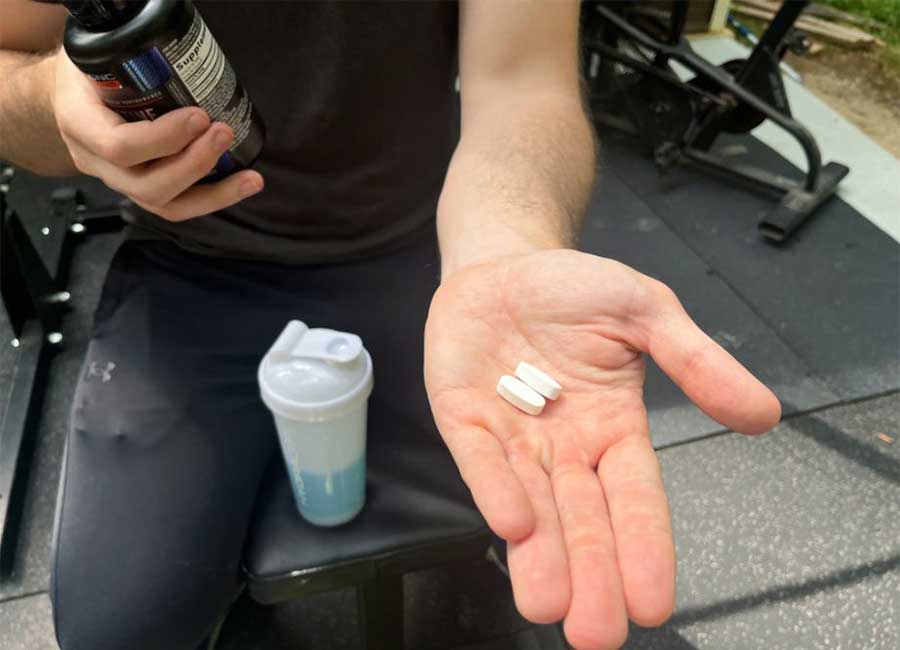
On the other hand, creatine gummies are extremely convenient. You can easily travel with them, leave them at work, or throw them in your gym bag, and all you need to do is grab a few gummies and enjoy them anytime. They may melt in hot temperatures, but aside from that, gummies certainly have the upper hand when it comes to convenience.
If you struggle to remember your creatine powder, gummies may be an easier addition to your daily routine.
Price Per Serving
When it comes to price per serving, traditional creatine powder is the more affordable option, especially a plain creatine monohydrate.
Unless you’re using a blend of creatine powders or a supplement that contains additional ingredients or uses a more expensive form like creatine HCL, the powder is generally very affordable. Prices will vary based on the brand and current market prices, but we’ve tested creatine powder that costs as little as $0.33 per serving.
RELATED: Types of Creatine
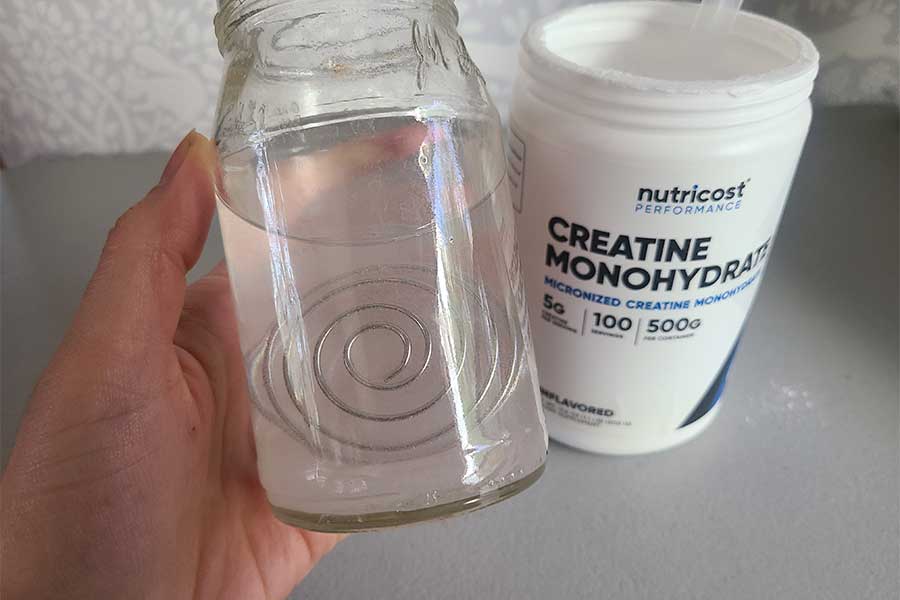
Gummies are almost always more expensive, which makes sense, as you’re paying for more ingredients, flavors, and the additional work required to make the gummies. The most affordable gummy we’ve tested costs $0.66 per serving, double the cost of powder, while other popular brands cost as much as $2 per serving.
Dietary Preferences
Let’s state the obvious here. Some creatine gummies taste like candy, such as Swoly Creatine Gummies, which are so good that GGR’s Senior Director of Content, Kate Meier, NASM-CPT, USAW-L1, CF-L1, said, “Dangerously delicious. Like, need-to-make-sure-my-child-doesn’t-find-these-or-she-will-eat-them-all kind of delicious!”
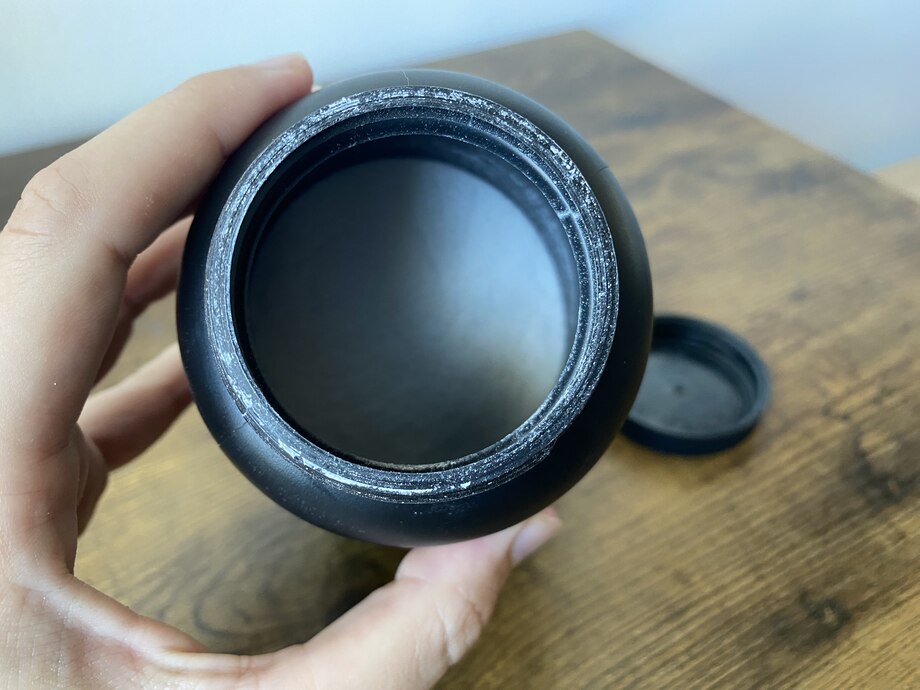
But, flavor aside, we need to consider the other ingredients. As Sydney Lappe, RD, pointed out, “Powders are likely to fit into more diet patterns, as gummies may contain gelatin (not vegan-friendly), gluten, etc. There’s also a greater risk of cross-contamination during processing.”
RELATED: Best Vegan Creatine
A single serving size can be three to five gummies or more depending on the formulation, and for some, the calories you would need to consume to get the recommended dose may be too high.
Creatine Dosage
Creatine gummies come with a fixed dose of creatine, and while most fall in the recommended range of 3 to 5 grams per day, some users may prefer more or less creatine. You can certainly eat more gummies, but if you’re looking for a specific dose, it’s often much easier to simply scoop more or less powder, especially as powder tends to be the more affordable option.
How To Choose Between Creatine Powder and Creatine Gummies
Ultimately, you’ll need to consider the key differences between creatine powder and gummies to help you decide which is best.
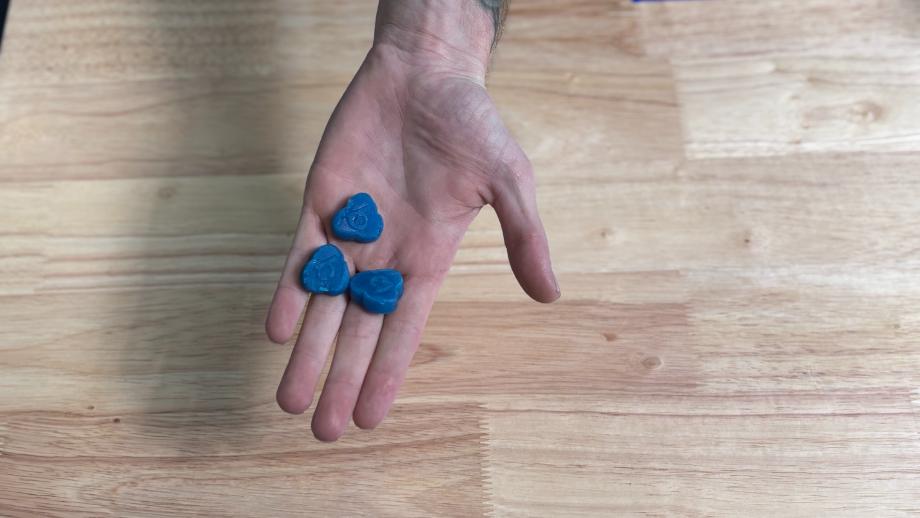
The best creatine gummies are the better choice for those who prefer convenience, want something that tastes good, and don’t mind spending a little extra on something they enjoy.
If you’re not worried about the taste and want the most affordable option, creatine powder is likely a better option, especially something simple like a plain creatine monohydrate powder.
Benefits of Creatine
We’ve touched on the differences, but what’s so special about creatine in the first place? Here are some of the most important creatine benefits that can help you decide if this supplement will support your goals.
Increases Muscle Gains
According to a 2018 study3, creatine supplementation provides a significant increase in strength, even with only four weeks of supplementation.
If you’re thinking that more strength equals more muscle gains, well, you’re right. A 2022 review4 showed that creatine has a positive effect on muscle size when paired with resistance training. It’s not going to make your muscles grow if you’re not lifting weights, but if you are, creatine is a great supplement to add to your stack.

RELATED: Does Creatine Help Build Muscle?
Improves Performance and Muscle Strength
Creatine is best for athletes who perform short bursts of high-intensity exercise, like jumping, sprinting, powerlifting, Weightlifting, and more. Runners probably won’t benefit much, as longer-duration exercise uses a different fuel source, but as a 2020 study shows5, creatine can help you get a few more reps during each set of your strength training workout.
A few more reps may not seem like a big deal, but this certainly adds up over time.
May Support Cognitive Health
This is still a relatively new area of research, but it’s certainly looking like creatine can have some powerful cognitive health benefits.
One study6 tested working memory and intelligence and found that creatine improved brain performance. Another study7 found that creatine can result in an 18% decrease in the risk of depression in women.
RELATED: Best Creatine for Women
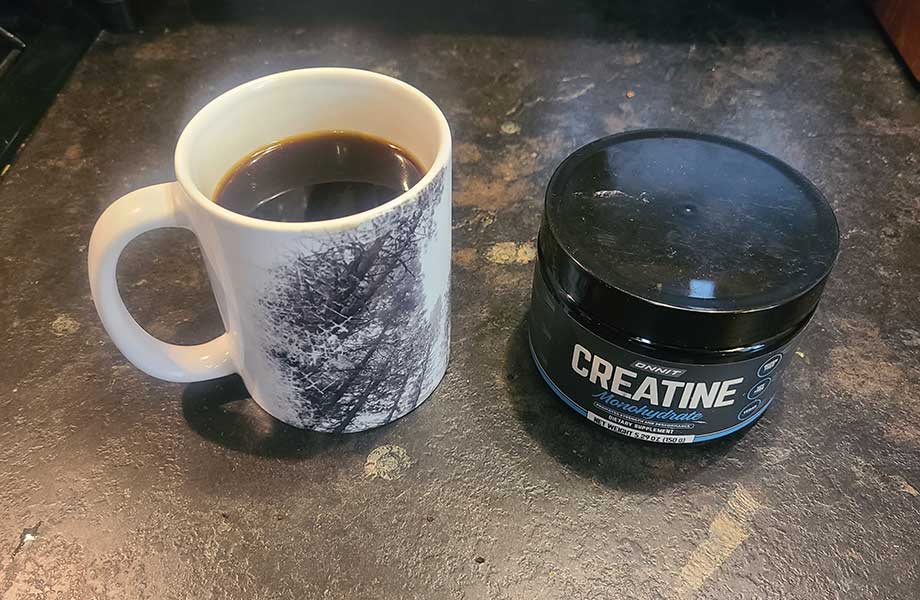
While most creatine users are looking for performance enhancement in their chosen sport, it certainly seems like creatine may have some powerful cognitive benefits.
Creatine Side Effects
As a nutrition coach, plenty of clients over the years have asked me about creatine, having heard rumors about creatine being a steroid, causing damage, water retention, or other negative side effects.
Current research1 shows that both short and long-term creatine use is very safe in healthy individuals, but there are a few minor side effects of creatine gummies and powder worth noting.
RELATED: Creatine Side Effects
Weight Gain
One of the most popular concerns is weight gain, as creatine is known to increase hydration and water retention2, as well as improve muscle mass over time.
Since many creatine users are looking for the muscle-building benefits anyway, having larger muscles is rarely a concern, but if you’re an athlete who competes in a weight class, know that creatine can certainly cause an increase in body weight. This won’t be fat gain, but it’s still worth mentioning, and if you need to be in a certain weight class, you’ll want to start using creatine well ahead of time to see how much excess weight your body will store.
Digestive Stress
Some users report stomach cramping, bloating, and diarrhea when using creatine, but this often occurs when using larger doses in a creatine loading phase, which isn’t necessary.
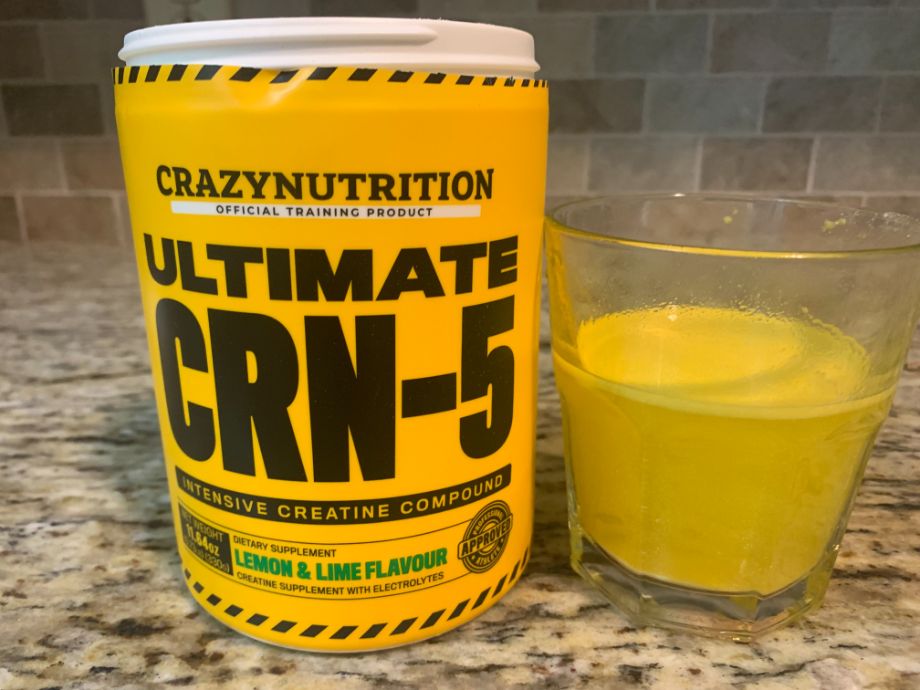
A 2008 study8 found that those taking 10 grams of creatine were the most likely to experience side effects, which is more than double the recommended 3- to 5-gram daily dose, so we suggest sticking to smaller doses.
If you have any concerns about digestive issues, we suggest consulting with a healthcare professional, which you should always do anyway before trying any new dietary supplements.
Acne, Hair Loss, Dehydration
Finally, I’ve seen claims about creatine increasing hair loss, causing acne, or resulting in dehydration. No study has shown this to be true, and these are more often than not things that would happen anyway from regular exercise and sweat, not something that’s triggered by creatine.
Creatine Gummies vs Powder: Final Thoughts
Overall, both options work very well for many people, as creatine is something that builds up in your system over time, and powder and gummies can both deliver an appropriate dose of creatine. The type of creatine doesn’t really matter as long as you’re getting enough, though creatine monohydrate is the most effective form and the form most commonly found in gummies.
Gummies are better for those who prefer convenience and want a little treat every day, while powder is best for those who aren’t concerned about the taste and want the most budget-friendly option.
If you’re using gummies, you’ll want to check the ingredient label and make sure everything works well with your diet. If all is good, then both gummies and powder should be equally effective if you take the recommended daily dose. Which one to choose depends entirely on personal preference.
Creatine Gummies vs Powder: FAQs
Do creatine gummies work as well as powder?
Yes, as long as the amount of creatine is the same, the results should be the same with both creatine gummies and powder. Creatine works gradually, so there’s no need to worry about absorption speed.
What is the best form of creatine to take?
The most well-researched form is creatine monohydrate. Other forms may also work well, but none have been proven to be more effective. If you’re looking for gummies, creatine monohydrate gummies will be your best option.
Are creatine gummies easier on the stomach?
This depends on the ingredients. Gummies may have additives, like artificial sweeteners, that may cause more irritation than plain creatine powder. Some companies make claims about improved bioavailability or faster digestion from gummies, but the absorption speed doesn’t matter, as creatine levels build up over time.
What are the disadvantages of creatine?
Creatine powder is very safe and effective, but some users may experience mild digestive discomfort, water retention, and weight gain.
References
- Kreider, R. B., Kalman, D. S., Antonio, J., Ziegenfuss, T. N., Wildman, R., Collins, R., Candow, D. G., Kleiner, S. M., Almada, A. L., & Lopez, H. L. (2017). International Society of Sports Nutrition position stand: safety and efficacy of creatine supplementation in exercise, sport, and medicine. Journal of the International Society of Sports Nutrition, 14, 18. https://doi.org/10.1186/s12970-017-0173-z
- Antonio, J., Candow, D. G., Forbes, S. C., Gualano, B., Jagim, A. R., Kreider, R. B., Rawson, E. S., Smith-Ryan, A. E., VanDusseldorp, T. A., Willoughby, D. S., & Ziegenfuss, T. N. (2021). Common questions and misconceptions about creatine supplementation: what does the scientific evidence really show?. Journal of the International Society of Sports Nutrition, 18(1), 13. https://doi.org/10.1186/s12970-021-00412-w
- Wang, C. C., Fang, C. C., Lee, Y. H., Yang, M. T., & Chan, K. H. (2018). Effects of 4-Week Creatine Supplementation Combined with Complex Training on Muscle Damage and Sport Performance. Nutrients, 10(11), 1640. https://doi.org/10.3390/nu10111640
- Wu, S. H., Chen, K. L., Hsu, C., Chen, H. C., Chen, J. Y., Yu, S. Y., & Shiu, Y. J. (2022). Creatine Supplementation for Muscle Growth: A Scoping Review of Randomized Clinical Trials from 2012 to 2021. Nutrients, 14(6), 1255. https://doi.org/10.3390/nu14061255
- Mills, S., Candow, D. G., Forbes, S. C., Neary, J. P., Ormsbee, M. J., & Antonio, J. (2020). Effects of Creatine Supplementation during Resistance Training Sessions in Physically Active Young Adults. Nutrients, 12(6), 1880. https://doi.org/10.3390/nu12061880
- Rae, C., Digney, A. L., McEwan, S. R., & Bates, T. C. (2003). Oral creatine monohydrate supplementation improves brain performance: a double-blind, placebo-controlled, cross-over trial. Proceedings. Biological sciences, 270(1529), 2147–2150. https://doi.org/10.1098/rspb.2003.2492
- Bakian, A. V., Huber, R. S., Scholl, L., Renshaw, P. F., & Kondo, D. (2020). Dietary creatine intake and depression risk among U.S. adults. Translational Psychiatry, 10(1). https://doi.org/10.1038/s41398-020-0741-x
- Ostojic, S. M., & Ahmetovic, Z. (2008). Gastrointestinal distress after creatine supplementation in athletes: are side effects dose dependent?. Research in sports medicine (Print), 16(1), 15–22. https://doi.org/10.1080/15438620701693280


